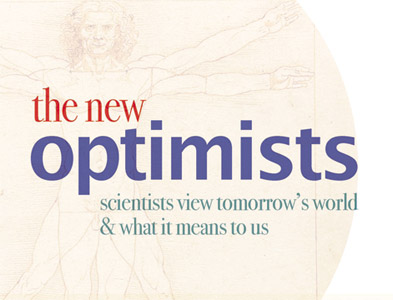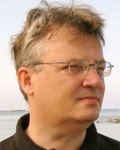 In his contribution to The New Optimists, Robin May, a Senior Lecturer in Infectious Disease in the School of Biosciences at the University of Birmingham, and Director of the May Lab, makes an assertion astounding to Jenny Uglow who wrote the Foreword to the book; namely, that we’re about to enter an age when having a copy of one’s own genome sequence is as common as carrying a mobile phone is today.
In his contribution to The New Optimists, Robin May, a Senior Lecturer in Infectious Disease in the School of Biosciences at the University of Birmingham, and Director of the May Lab, makes an assertion astounding to Jenny Uglow who wrote the Foreword to the book; namely, that we’re about to enter an age when having a copy of one’s own genome sequence is as common as carrying a mobile phone is today.
The implications of having the availability of whole genome sequences will usher in an era of truly ‘personal’ medicine, and will shake our understanding of who we really are.
At the May Lab, scientists carry out work to know more about the continual struggle between pathogens and their hosts. This struggle is a major selective force, resulting in the evolution of ever more complex host-pathogen interactions as both sides attempt to ‘win’ the conflict. Scientists here are interested in the molecular basis of such interactions and in how they have evolved.









